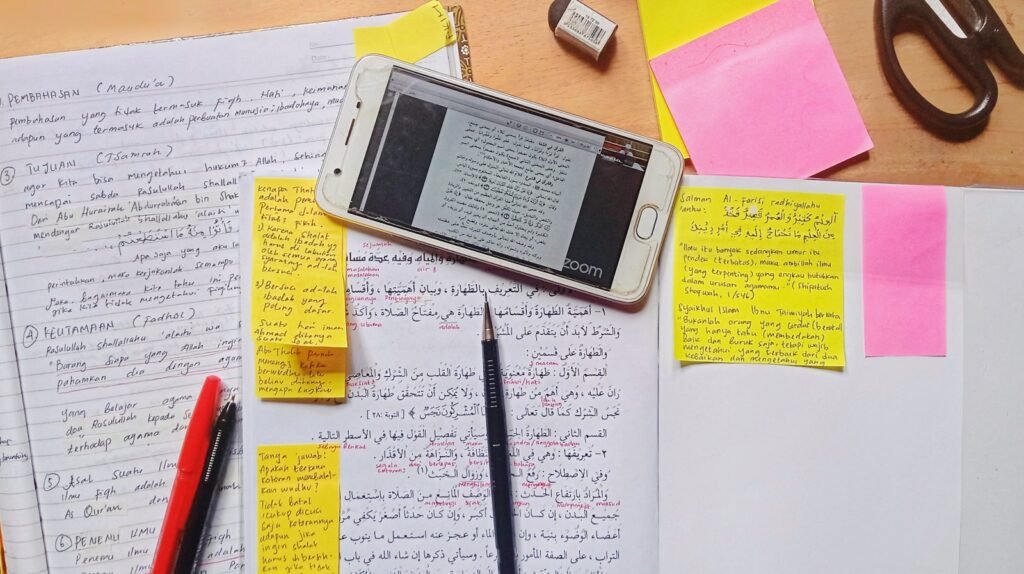
Why Critical Thinking is Essential in Essay Writing
Imagine, if you will, the mystical realm of critical thinking, a magical elixir that transforms mere words into captivating essays that not only captivate but also enlighten. Envision yourself in the essay laboratory, armed with a ladle of logic, a pinch of reasoning, and a sprinkle of skepticism. As the wise George Orwell once mused, “To perceive what is right in front of one’s eyes requires an ongoing battle.” And oh, how rewarding that battle becomes when concocting an essay brimming with original thoughts marinated in critical thinking.
Consider critical thinking as your guiding star in the untamed wilderness of essay composition. It acts as your sharpshooter, aiding you in deciphering truth from fiction amidst the chaotic landscape. In the words of philosopher extraordinaire Bertrand Russell, “The core essence of an independent mind lies not within its conclusions but within its thought process.” So saddle up, dear writer; let critical thinking be your steadfast companion on this literary voyage where clarity reigns supreme and obscurity is banished to the desolate corners of poor writing.
The Importance of Analyzing Information Critically
Living in a time inundated with an overflow of information, bombarded by an endless stream of facts and figures from all directions. The skill to dissect this information critically is not merely advantageous; it is akin to possessing a superhuman ability in the modern world. As the brilliant mind of Albert Einstein once proclaimed, “The crucial thing is to never cease questioning. Curiosity possesses its own inexplicable purpose.” So, why not exercise those critical thinking faculties and plunge headfirst into the vast ocean of knowledge before you?
In a society where misinformation spreads like wildfire, being able to navigate through the chaos and distinguish reality from fiction is paramount. As Mark Twain wittily remarked, “It proves simpler to deceive people than to convince them that they have been deceived.” Therefore, equip yourself with the weapons of critical thinking and allow skepticism to be your protective armor. Remember Aristotle’s wise words: “It signifies true education when one can entertain a notion without necessarily embracing it.” Let your thoughts meander freely, question everything around you, and embrace the sheer power that comes with scrutinizing information critically.n
How to Develop Critical Thinking Skills for Essay Writing
In the realm of crafting exceptional essays, one cannot underestimate the profound impact of critical thinking. It is akin to honing a blade before entering a fierce battle – an indispensable tool for conquering the academic landscape. But how does one go about cultivating this formidable skill? Picture it as a rigorous mental exercise regimen – consistently flex those critical thinking muscles. Dare yourself to challenge assumptions, analyze evidence with precision, and delve into various perspectives. As the renowned Albert Einstein famously declared, “The crucial thing is not to cease questioning.” Therefore, keep those cognitive cogs turning and refuse to settle for superficial solutions.
An intriguing method to enhance your critical thinking abilities is through engaging in spirited debates. It resembles a cerebral sparring match where ideas collide and valuable insights emerge triumphant. Embrace the opportunity to defend your beliefs while remaining receptive to opposing viewpoints. In the words of the sagacious Plato, “A sound decision rests on knowledge rather than numbers.” Immerse yourself in dialogues, seek wisdom from all vantage points, and witness your critical thinking prowess ascend to unprecedented levels. Always remember that in the domain of essay writing, a sharp intellect serves as your most potent weapon.
Ways to Apply Critical Thinking in Essay Planning
Imagine this: a blank page stares back at you, challenging you with its vast emptiness. You’re about to tackle that essay, but where do you even start? Fear not, dear writer! Let’s plunge into the electrifying realm of essay planning with a touch of critical thinking.
First things first, grab your favorite drink, get comfy in your writing nook, and let those critical thinking wheels begin to spin. Remember the wise words of Winston Churchill, who once said, “I am always ready to learn, although I do not always like being taught.” Embrace Churchill’s wisdom and approach your essay planning with a curious mind- question everything, analyze deeply, and challenge every notion that comes your way. Trust me on this one; your essay will appreciate it.
Now onto strategy. As Albert Einstein famously pondered, “The important thing is not to stop questioning.” So put on your metaphorical detective hat and start uncovering the best structure for your essay. Plot out your ideas like a seasoned puzzle-solver connecting dots effortlessly until your chaotic thoughts transform into a masterpiece of logic and coherence. In the immortal words of Plato himself: “Thinking: the talking of the soul with itself.” Allow your soul to converse freely and critically as you watch your essay rise to dazzling new heights of brilliance. Keep in mind that a well-planned essay is akin to a meticulously crafted symphony- each note blending seamlessly with the next to create an unforgettable piece that resonates deeply with its audience.
Spotting Logical Fallacies in Essay Writing
Logical fallacies lurk like elusive shadows in the depths of your essay, poised to disrupt and dismantle your argument without warning. Imagine this: you’re confidently presenting compelling points one after another, only to be blindsided by a faulty assumption or flawed reasoning that leaves your essay as unstable as a house of cards in a fierce gale. To evade this perilous pitfall, hone your investigative skills and adeptly identify logical fallacies with the finesse of a seasoned professional.
One prevalent fallacy to be wary of is the classic ad hominem attack, where instead of addressing the argument at hand, you target the individual making the argument. It’s akin to attempting victory in a race by tripping competitors rather than enhancing your own speed. As the wise Carl Sagan once remarked, “If you cannot articulate your opponent’s perspective convincingly, then you do not comprehend their stance- nor yours.” Therefore, when tempted to resort to personal attacks over substantive debate, pause for reflection and remember that the credibility of your essay lies in sound reasoning rather than mudslinging tactics.
The Art of Constructing Strong Arguments in Essays
Building a robust argument in essays is akin to assembling a house of cards amidst a whirlwind – it demands skill, finesse, and perhaps a touch of serendipity. Each assertion must not only stand independently but also buttress the overarching framework of your argument. As Ernest Hemingway eloquently opined, “Prose is architecture, not interior decoration.” Thus, envision your argument as the bedrock of your essay – resilient, meticulously crafted, and capable of weathering any literary storm that may besiege it.
When shaping your arguments, channel your inner Sherlock Holmes and scrutinize each piece of evidence with acute discernment. Resist the temptation to accept information at face value; instead, probe it, dissect it, and interrogate it like a seasoned sleuth. In the words of Richard Feynman: “The first principle is that you must not fool yourself…and you are the easiest person to fool.” Embrace this ethos wholeheartedly by daring to challenge your own convictions and assumptions; after all, this process forms an integral part of the exhilarating odyssey towards constructing watertight arguments in your essays.
Avoiding Bias and Subjectivity in Essay Writing through Critical Thinking
In the mysterious realm of essay composition, bias creeps in surreptitiously, like a phantom in the night – elusive, enigmatic, and poised to strike at any moment. It is imperative to acknowledge that our individual viewpoints and life experiences have the power to distort the presentation of facts, resulting in a narrative that may deviate from reality. As the illustrious wordsmith George Orwell once articulated, “To perceive what is plainly evident requires relentless scrutiny.” Therefore, as we weave our essays together, it is paramount to pause, don our detective caps, and scrutinize every facet with meticulous discernment to ensure that we do not inadvertently succumb to our own predispositions.
Amidst the tumultuous landscape of essay construction lies bias lurking ominously in obscurity; eagerly anticipating an opportunity to ensnare unsuspecting writers. It resembles navigating through a labyrinth whilst blindfolded – seemingly advancing towards a destination only to find oneself meandering aimlessly in circles without awareness. In accordance with the sagacious teachings of Confucius who professed “True knowledge is being aware of one’s ignorance,” let us embrace ambiguity, challenge preconceived notions and approach our compositions with analytical acuity. Through honing our critical thinking faculties, we can disentangle the intricate web spun by bias and subjectivity thereby allowing authenticity and lucidity to illuminate our prose.
Utilizing Evidence Effectively in Essay Writing
In the realm of essay writing, the effective utilization of evidence can either skyrocket your argument to success or plummet it faster than a cheetah on a caffeine high. As Sherlock Holmes so astutely put it, “It is a capital mistake to theorize before one has data.” So, grab your magnifying glass and dive into the world of sleuthing for evidence that not only bolsters your points but also adds that extra pizzazz to your prose.
Picture your essay as a delectable lasagna. The evidence you provide serves as the decadent layers of pasta, meat, and cheese that bind the entire dish together. Just like how soggy noodles or bland meat would ruin a good lasagna, weak or irrelevant evidence can cause your essay to fall flat. In the words of Aristotle, “The aim of argument, or discussion should not be victory, but progress.” Therefore, choose your evidence thoughtfully, scatter it throughout your writing like Parmesan atop that delicious lasagna and witness as your arguments come alive in a manner that even the most stoic philosopher would nod in approval at.
The Role of Critical Thinking in Crafting Clear and Concise Essays
Oh, the mystical art of composing eloquent and succinct essays is a talent that distinguishes the experts from the novices, the literary wizards from the linguistic fumblers. And at the core of this enigmatic craft lies the powerful weapon of critical thinking, a skill so crucial it’s like the mysterious elixir that infuses a dull essay with zest.
When you find yourself immersed in the depths of essay-writing turmoil, critical thinking becomes your steadfast companion, leading you through the murky labyrinth of information overload. As wise Benjamin Franklin once uttered, “To succeed, leap swiftly at opportunities as you do at conclusions.” Isn’t that an undeniable truth? Critical thinking aids you in navigating through the cacophony, discerning between reality and fantasy, and concocting a savory blend of logic and rationale in your essay cauldron. So next time you confront a blank canvas, channel your inner Sherlock Holmes and allow critical thinking to serve as your magnifying glass to uncover nuggets of clarity and brevity.
In academia’s realm where garbled language is unforgivable and lucidity reigns supreme, mastering the art of critical thinking is akin to possessing a golden ticket to Willy Wonka’s chocolate factory for essay writing. As astute Carl Sagan pondered once,”Somewhere,something incredible is waiting to be known.” Isn’t that what makes it all so exhilarating? Equipped with critical thinking prowess,you’re not merely regurgitating facts;you’re harnessing unruly thoughts and ideas,molding them into refined arguments that pirouette gracefully off pages with finesse.So dear writer,envelop yourself inthe magicofcriticalthinking,and witnessyour essays metamorphosefrom winding riversinto streams shimmeringwith brilliance.


